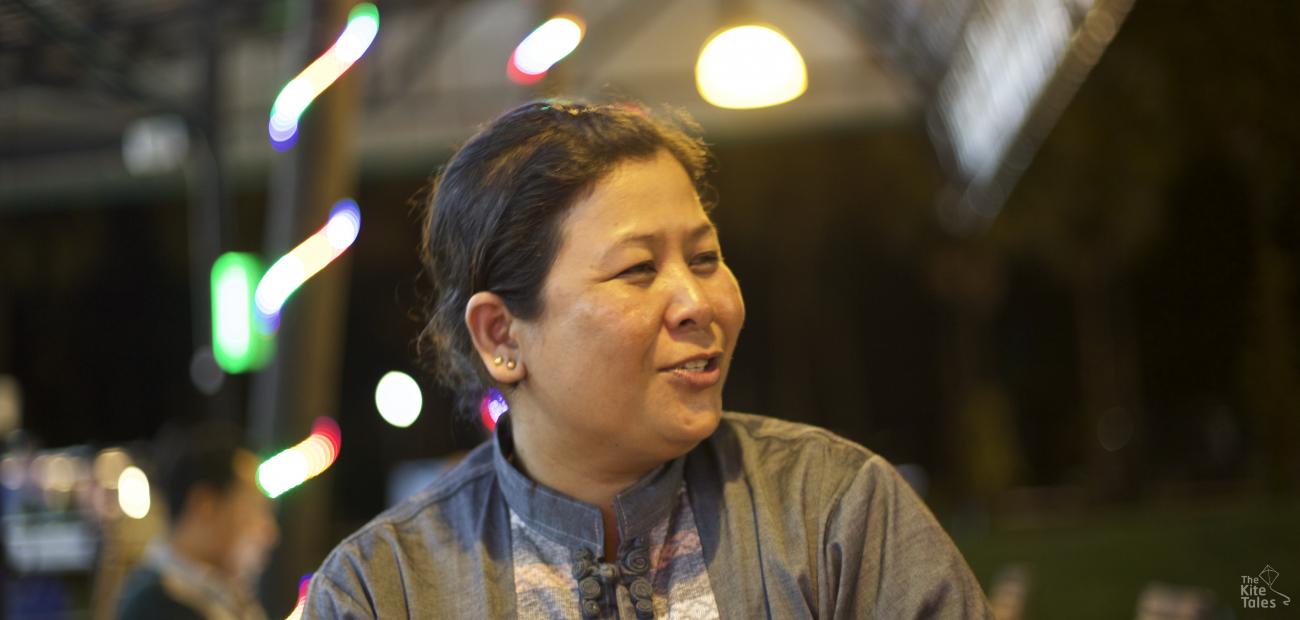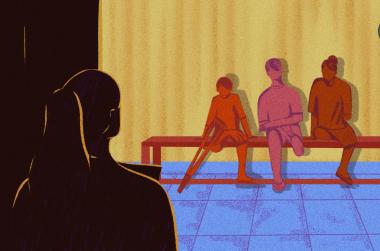For 19 years, Mya Thet Mu lived as an openly gay woman in Thailand. But within a year of returning to Myanmar, the rights campaigner faced public abuse. Having confronted the discrimination and conservative attitudes of a long-isolated society, the cheerful 40-year-old refused to be deterred. Now she brings together young people to challenge discrimination and traditional gender roles in and around her hometown of Dawei in southern Myanmar.
Better known by her nickname Ma Su, Mya Thet Mu refused to conform to traditional feminine roles from an early age and was called a ‘tomboy’ — a term often used as a euphemism for lesbianism that skirts notions of sexuality. She says she was one of the lucky ones because she had a loving home, with a family that largely accepted her.
Forced by economics to cross the border into Thailand, where she took a string of factory jobs in the vast fish processing industry, she eventually found work with various rights charities on issues of lesbian, gay, bisexual and transgender (LGBT) health and education. This turned out to be her route home.
She gives us a ride on her motorbike, taking us to a tree-lined boulevard, a contemplative spot where she often comes to watch the sun set over the paddy fields and recharge her energy.
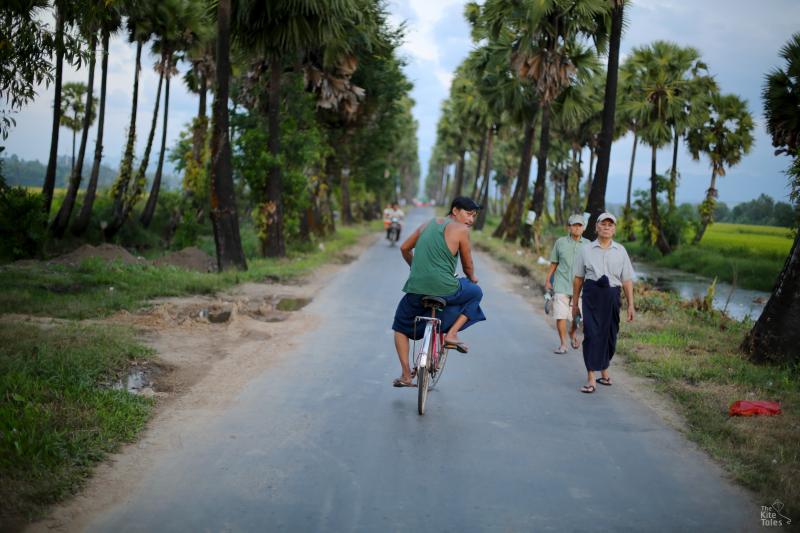
“My parents loved me because they didn’t have many boys,” said Mya Thet Mu, the daughter of a school headmaster and a tailor who is one of seven siblings.
“Only the eldest is a boy, the rest of us are all girls. That’s why I’m like a son. I refused to wear girls’ clothes even at a young age.
“My parents are no longer around but I don’t have any problems with my siblings. What trouble there is, is with my aunts. They say: ‘If you’re dressed like a man and behave like a man, don’t come to our house’. If I have to go and give them something, I’ll just leave it at the entrance. I say: ’I’m wearing trousers so I’m not coming in’.
“In Thailand, if you want to live out in the open as a gay person, you can. In Myanmar, even if you some people want to live openly they can’t because of their communities. It’s because of traditional ways of thinking. Even now people say: ‘He’s (gay) because he had adulterous thoughts about someone else’s wife in his previous life’.
“People only have two boxes — men and women. If you don’t appear to fit in one of these boxes, then people think it’s not normal. What we’re [Colors Rainbow] trying to do now is training that stops families forcing their children to behave one way or the other.”
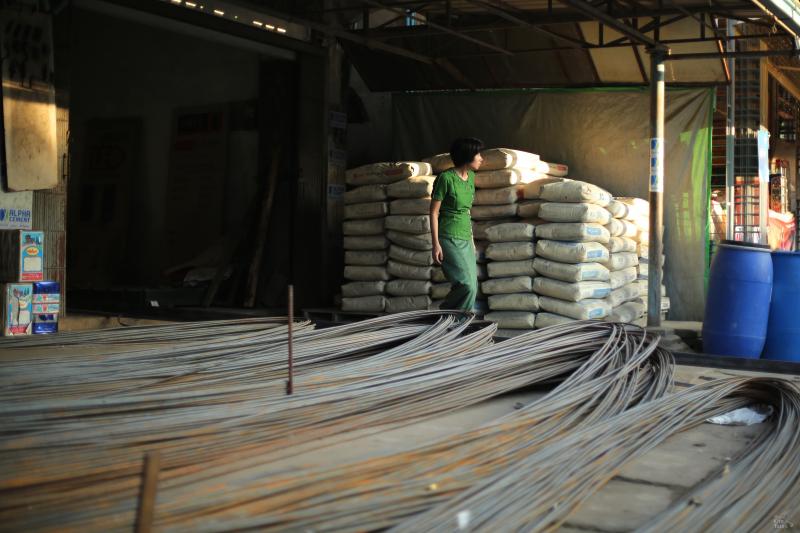
She said life in Myanmar is particularly hard for lesbians, who are still considered taboo and find it much harder to find work, partly because of discrimination again women.
“If a family mistreats a gay man he can go and live with friends. It’s more difficult for women. No matter how their family treats them, they live at home despite the beatings. It’s hard for them to stand on their own feet. Another thing that’s exhausting for them relates to work. Gay men and transgender people are often more acceptable in our society and many of them have legitimate businesses [often in things like makeup design or wedding planning. Transgender people are also sought after as mystics for traditional festivals].
“Just take the experience of a friend who was working in the marketing department of a company. She wasn’t promoted after a year but those below her got promotions. Her boss said: ‘Can you wear women’s clothes if you go to meetings in Yangon? If you can do it, I’ll give you a promotion.’ She quit her job because she couldn’t get a promotion. She’s now selling chicken eggs.
“If I meet lesbians, I tell them to learn vocational skills so that they can get jobs and survive. Learn crafts, learn machinery. Then you can feed yourself.
“One time, a doctor acquaintance visited and I took her to the pagoda. At the steps, there was a group of young men coming down. My hair wasn’t very short, but I was wearing a man’s shirt and trousers. Those young men said, ‘I really want to kick people like this down the stairs.’ Even though I’m older, sometimes youth have these thoughts.
“I pretended not to hear. If I respond, it would escalate. I didn’t see this type of discrimination in Thailand and I lived there for 19 years. I had been back in Myanmar for less than a year when I was abused.
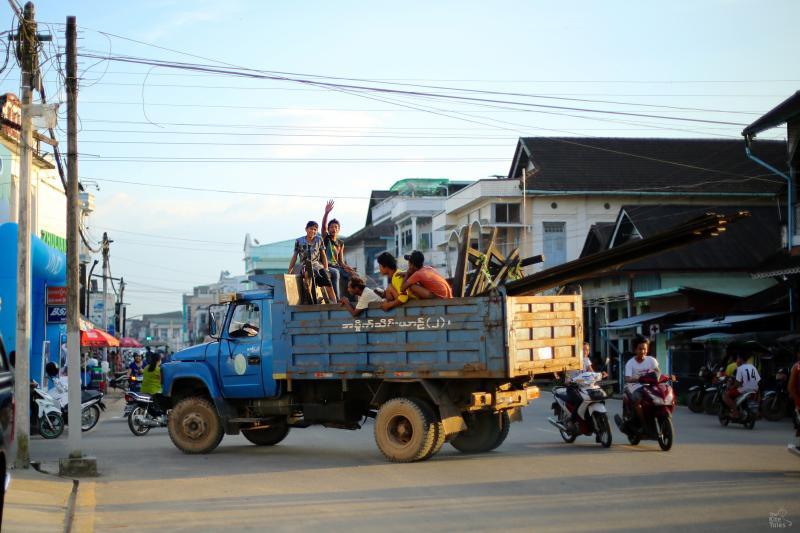
“I arrived in Thailand in 1996, at the age of 20. It was really really hard for about three years. How can a migrant worker’s life be smooth?
“I worked in a fish processing company. There were jobs for cutting squid or fish. Those who behave like men never want to sit down quietly to peel prawns. You wash and clean and carry buckets. That kind of work.”
She began working at several civil rights groups on LGBT issues, helping to organise awareness raising programmes in the Myanmar migrant community. After Myanmar opened up some of those groups moved back into the country and in 2015 a post opened up in Dawei with the rights group Colors Rainbow.
“I was happy to be able to come back to Myanmar. At the beginning, we only gave training to LGBT people but we decided that doesn’t work as well, and now we mix the groups up,” she said, adding they have even given workshops with teachers and hope to expand their programmes in schools to counter a high dropout rate.
“If you asked any lesbian, nine out of 10 wouldn’t have finished school. They were just too afraid to be dressed in girl’s clothes. So they quit.
“Yes, the government has stipulated this uniform, but if both parents and teachers are supportive the student will attend the class. If all you say is, ‘Don’t come to school if you’re going to wear men’s clothes’, then that student will stop coming to school. She will quit.
“I was so worried because we had to deal with a government department. (But) the feedback has been great.
“You have to have very tough discussions. Most young people are not familiar with LGBT people, so they are afraid initially. On the first day, they don’t know each other well. But on the last day, when we ask them to reflect – it’s a three-day course – they give feedback like: ‘I used to hate these people so much. But now that I’ve been in close quarters with them, I realise their characters are not what I thought. I will share this with my friends too.’
“I’m happy whenever I hear such feedback.
“We talk about a person’s sexual orientation — whether it’s their desire, genetics, or just pretence. We say, ‘If you’re a man, try and live like you are gay for a day. Women should try and be a lesbian for a day. Can you do it? No? If that’s the case, how can these people be faking? This is how they are born’.”
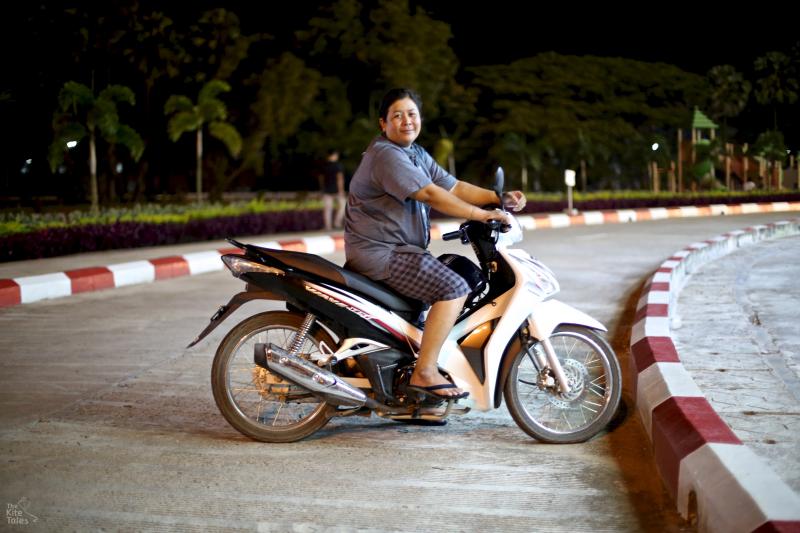
Mya Thet Mu says acceptance is a matter of compromise — and perseverance.
“Let’s say I’m in love with a girl. The girl faces problems with her family, who ask her why she’s going out with a lesbian. Even though I know they hate me, I try and be someone they can rely on. That’s how I win them over. No matter what the people say of me, I’ll help them if they’re in need. What I really treasure is my name and reputation. Not to have a bad name. To have done something for this group of people, among ordinary people, among the lesbian youth. That’s my most precious thing.”
(Interview conducted in Nov 2016)

